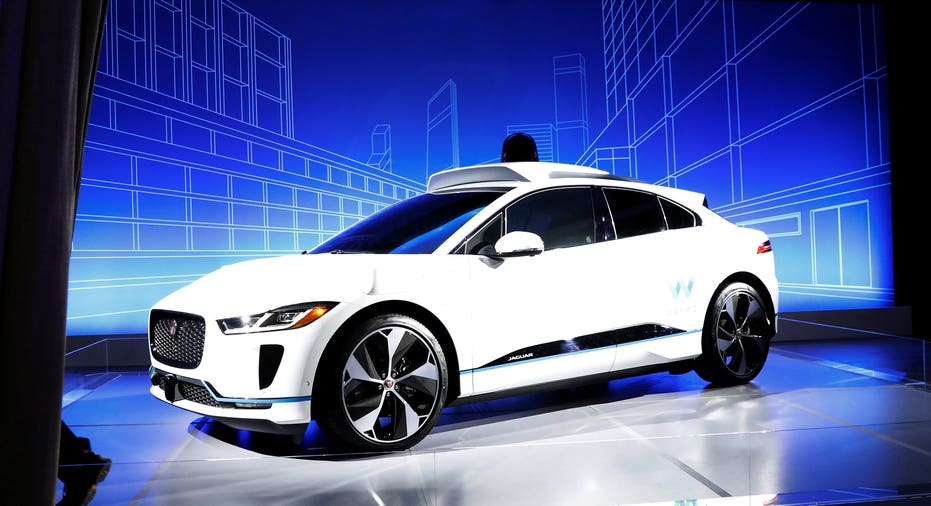Waymo to use Jaguar I-PACE electric vehicles in robotaxi program

A Jaguar I-PACE self-driving car is pictured during its unveiling by Waymo in the Manhattan borough of New York City, New York, U.S., March 27, 2018. REUTERS/Brendan McDermid (Reuters)
NEW YORK (Reuters) - Waymo will include up to 20,000 Jaguar I-PACE electric vehicles in its upcoming autonomous fleet as part of a long-term partnership between Alphabet's self-driving unit and Jaguar Land Rover Automotive PLC, the two companies said on Tuesday.
The partnership, announced ahead of the New York International Auto Show, is another step in Waymo's plan to roll out a robotaxi service in the United States.
Waymo is competing in the race to deploy such vehicles for the masses, where rivals include General Motors and Uber Technologies.
Testing of the vehicles will begin this year, Waymo Chief Executive John Krafcik said, with incorporation into the fleet starting in 2020.
Jaguar's I-PACE launched this month. The SUV is the first battery-powered vehicle for the brand, which is owned by India's Tata Motors, underscoring the convergence of electrification and automation.
Jaguar Land Rover Chief Executive Ralf Speth said the company had been approached by Waymo about the project. Company executives said the talks and development had been underway for about a year. Speth said the company is confident the Waymo technology is safe.
Waymo currently tests its self-driving system on Chrysler Pacifica minivans built by Fiat Chrysler Automobiles. The company has plans to roll out a ride service to the public in the Phoenix, Arizona area in coming months, with plans to later launch it more widely.
Waymo has been working on self-driving cars since 2009 and has driven over 5 million miles on public roads. Last month, it released a video designed to help potential passengers envision what it is like to ride inside an autonomous vehicle.
But there are questions over the safety of self-driving vehicles following the March 18 death of a pedestrian struck by a self-driving Uber test vehicle in Arizona. On Saturday, Krafcik said Waymo's system would have seen and avoided the pedestrian.
Arizona's governor suspended testing by Uber on Monday.
Krafcik declined to say if he thought the crash was a setback for the industry or if new regulations are needed. He said the company, which has been working on the technology for nine years, is confident that "what we're putting on the road is safe technology."
Uber announced last year that it planned to buy up to 24,000 vehicles from Volvo, owned by China's Geely Automobile Holdings Ltd, in a non-exclusive deal from 2019 to 2021. Companies planning to launch driverless car services generally supplement existing hardware on vehicles supplied by automakers with their own self-driving technology.
(Writing by Alexandria Sage and David Shepardson; Editing by Chris Reese and Susan Thomas)



















